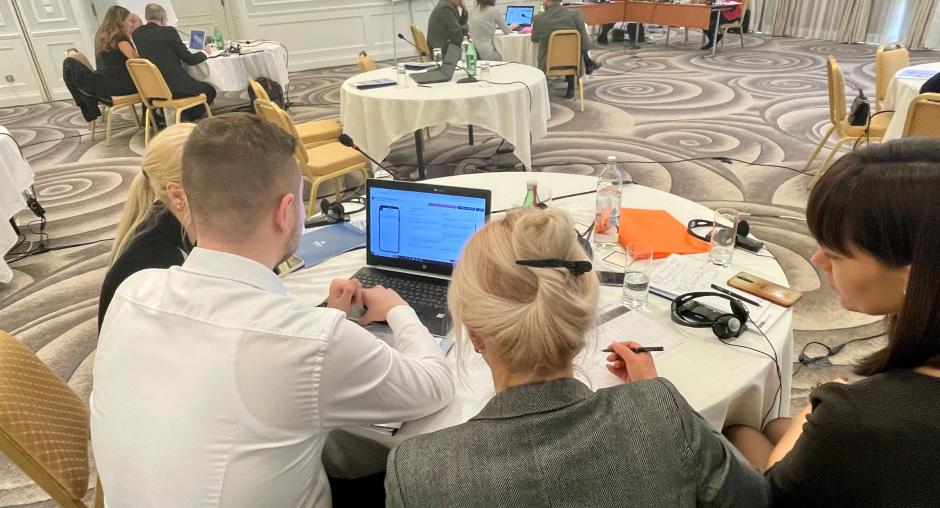OSCE supports participating States in the fight against transnational organized crime and corruption through targeted asset recovery training

From 7 to 10 November, 21 criminal justice practitioners from Albania, Bosnia and Herzegovina, Croatia, Moldova, Montenegro, North Macedonia, Serbia, and Ukraine gathered in Dubrovnik for a training course on mutual legal assistance and international co-operation in asset recovery.
The training, delivered through both theoretical and practical sessions, strengthened the practitioners’ capacities in addressing cross-border organized crime and corruption. The course also covered challenges criminal justice actors face in tracing, seizing, confiscating and repatriating criminal assets that are located outside their jurisdictions.
“The training was very useful for improving our understanding of international co-operation in relation to criminal asset investigation, seizure, and confiscation. The case study at the center of the training was exemplary and gave the opportunity to reflect on various aspects of asset recovery. From the technical aspect, the training platform used has made the training more efficient,” said Miljko Radisavljevic, Deputy Prosecutor of the Public Republic Prosecutor’s Office in Serbia.
Prosecutor Darko Jakimovski, from the Skopje Prosecutor’s Office, stated that “the training offered a very good mapping of legal channels that we can use in our daily work for getting first information and documents related to investigations of cross-border crime. It also offered a great opportunity to learn about the entire global international infrastructure and provided clarity on how and when existing channels shall be used to obtain specific data and evidence. Moreover, through this training we have understood that the existing co-operation platforms and mechanisms - such as Asset Recovery Offices, the different Asset Recovery Inter-Agency Networks, EUROPOL - are not overlapping, but complimentary instead.”
“The OSCE will continue providing support in enhancing capacities of judges, prosecutors, and criminal justice practitioners, at the regional and national level. These exercises are important not only in building skills necessary to address complex cases and investigations but also connecting practitioners in the region, which will also help in the future in sharing of operational information,” said Iris Pilika, project lead with the Office of the Co-ordinator of OSCE Economic and Environmental Activities (OCEEA).
The workshop was part of ongoing efforts to strengthen the ability of participating States to trace, seize, and confiscate criminal assets by the OSCE’s Transnational Threats Department (TNTD) and OCEEA and implemented in the framework of the extra-budgetary project “Strengthening the fight against transnational organized crime in South-Eastern Europe through improved regional co-operation in asset seizure, confiscation, management and re-use”, which is funded by the United States, Germany, Italy and United Kingdom.